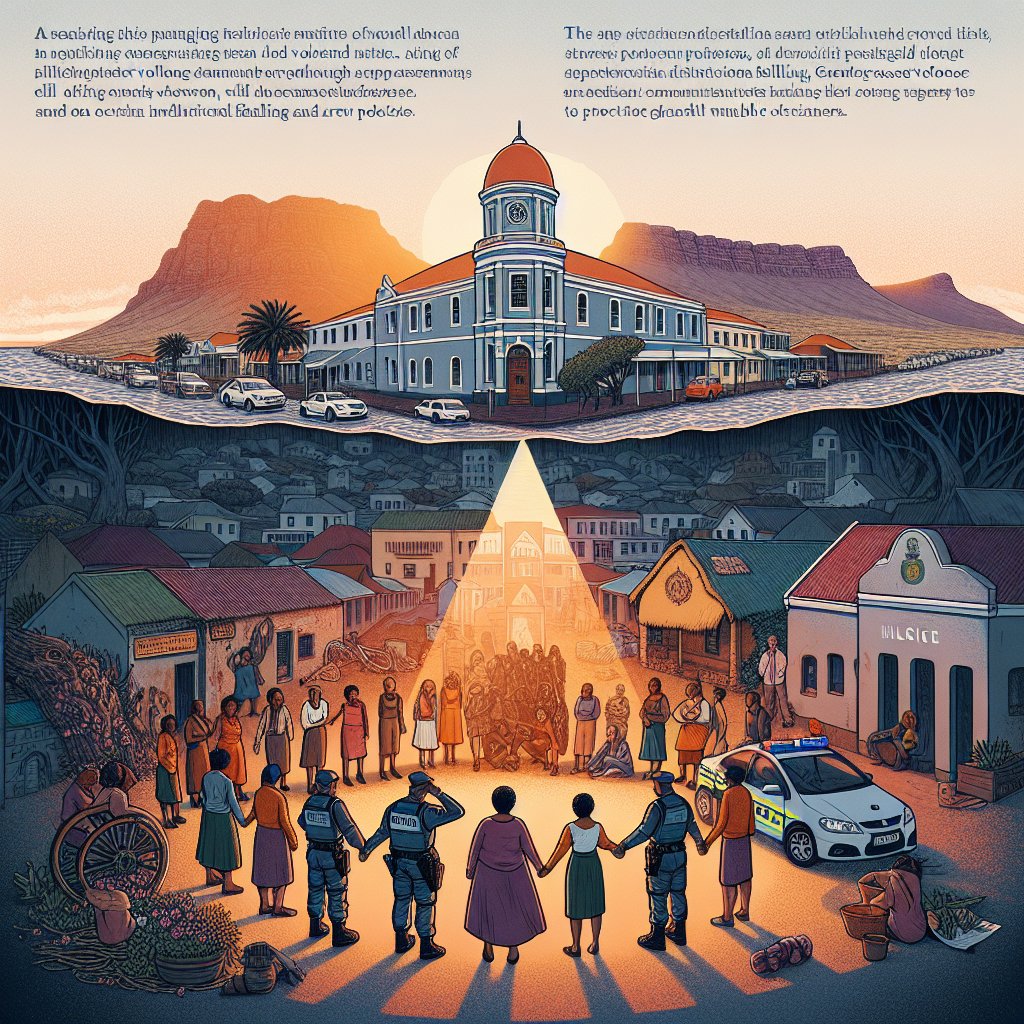Image created by AI
Montagu's Shrouded Crisis: The Battle Against Gender-Based Violence
The charming town of Montagu, a scenic jewel 200km from Cape Town, hides an ugly truth beneath its beauty; a truth marked by the harrowing persistence of gender-based violence (GBV) and an oftentimes ineffectual police response. The town's allure for tourists, with its quaint architecture and fine local provisions, belies the living conditions most residents endure and the threats women face daily — from domestic abuse to institutional dismissiveness.
Denia Jansen, a Montagu local who leads a healing circle for GBV survivors, highlights the frightening normalcy of abuse here. Through her work with the NGO Trust for Community Outreach (Tcoe) and its affiliate, the Rural Women’s Assembly (RWA), Jansen provides solace and advocacy in an environment where the system fails to protect its most vulnerable. By fostering a healing community, she serves as both a literal and metaphorical guide through the complex maze of domestic violence's repercussions.
The RWA's Healing Circle emerged as a response to a dire need — the absence of community safety nets for women subjected to violence. Local survivor stories, chronicled by Jansen and media outlets, reveal an entrenched pattern of brutality and negligence. Victims like Sylvia Plaatjies, who suffered miscarriages due to abuse, recount not only relentless violence but also the additional indignity of stigma and insensitivity from healthcare providers — a heartbreakingly common narrative among South African women living with HIV.
These distressing accounts are compounded by the police's apparent apathy, as survivors disclose instances of being rejected by officers and victim-blamed — a situation unchanged for years. This culture of inattention extends beyond Montagu; the regional police station in Zolani is another testimony to institutional shortcomings, with victims being denied urgent help under the pretext of station closure.
Amid this bleak reality, community health worker Olga Thafeni emerges as a beacon of resilience and hope. She leverages her standing as a recognized figure to prompt police response, though her personal safety sometimes hangs in the balance. Thafeni's experience underscores the selectiveness in police engagement — echoing the broader systemic ailment that allows gender-based violence to fester.
Montagu Police, represented by Warrant Officer Suri Meyer, claim commitment to a "multidisciplinary strategy" to efficiently aid victims. However, their approach, which hinges on urging victims "to regain control," reveals a fundamental misunderstanding of abusive power dynamics — most GBV victims lack the agency to "regain control" and require robust external support and protection.
The discord between lived experiences of GBV survivors and police assurances amplifies a national emergency. The conversation unmasks a broader conversation about the lack of infrastructure supporting GBV survivors in rural areas, highlighting the stark contrast to urban counterparts with established safe houses. Jansen encapsulates the somber sentiment underlying the plight of Montagu's women: the desire for safety in their own homes rather than temporary shelters.
Examining national GBV statistics from mid-2023, we confront the pervasiveness of such violence in South Africa. The figures evoke a call to action — a demand for robust measures and resources to combat the enduring crisis. It is evident that alongside advocacy on the ground, systemic overhaul, increased NGO support, and cultural shifts within the police force are imperative to mitigate the crisis of gender-based violence in towns like Montagu and beyond.










